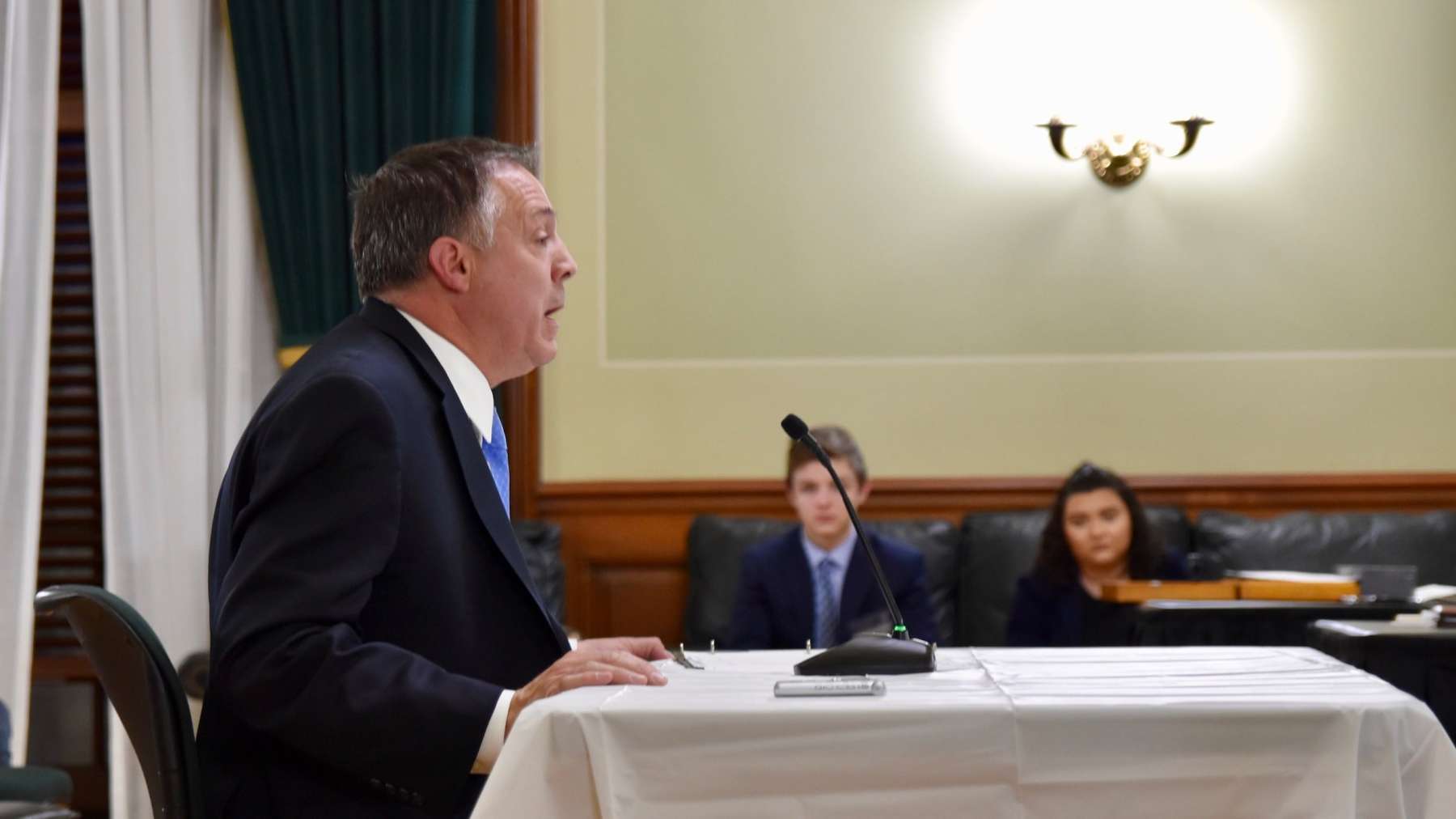Raptakis law to make blocking the highway a felony is legislative overkill
Laws such as the one proposed by Raptakis are passed to keep protesters who challenge the status quo in their proper place. Such laws are meant to cut off all paths of effective resistance and protest until only quiet and easily ignored gatherings of no more than a few people can be hidden away in Orwellian “free speech zones” far
October 14, 2020, 10:34 am
By Steve Ahlquist
Laws such as the one proposed by Raptakis are passed to keep protesters who challenge the status quo in their proper place. Such laws are meant to cut off all paths of effective resistance and protest until only quiet and easily ignored gatherings of no more than a few people can be hidden away in Orwellian “free speech zones” far from the eyes of the media and the public.
Almost six years ago Black Lives Matter protesters in Providence blocked Route 95 in response to events in Ferguson. State Senator Leonidas Raptakis (Democrat, District 33, East Greenwich) introduced legislation that would make such actions a felony. The bill introduced by Raptakis was eviscerated during its committee hearing, the Senator is planning to introduce his bill again.
Here is what I wrote then, slightly edited and updated:
The bill by State Senator Leonidas Raptakis (Democrat, District 33, East Greenwich), that makes blocking a “highway or roadway” a felony is legislative overkill, and smacks of the very kind of systemic racism the #BlackLivesMatter protests are trying to confront.
The bill Raptakis introduced five years ago mandated that “a first offense would result in imprisonment of between one and three years,” a second violation between three and five years and “a third violation will result in imprisonment for between five and 10 years, with no eligibility for suspension, deferral or probation for two years.”
There is no way to say this nicely: These penalties are draconian and anti-American.
Introducing this bill is an odd way for Senator Raptakis to demonstrate that “he absolutely respects and supports First Amendment rights to free speech and peaceful demonstration.”
A potential three-year prison term for a person engaging in nonviolent political protest is not in keeping with American values. Make no mistake: If this bill becomes law, lives will be destroyed. First-time offenders will leave prison with a felony conviction on their record, making it difficult to find a place to live or to get a job.
The tactic of blocking the highways is massively unpopular with the public, but one has to wonder if it’s the message or the tactic that has people so worked up. After all, highways are blocked all the time by accidents, baseball games, rush hour or wayward deer. Ambulances and rescue vehicles are routinely rerouted to different hospitals because of such circumstances. Traffic is an unavoidable part of modern society. So why is the public seemingly more worked up by traffic than by the killing by police of unarmed black persons?
The law as suggested by Raptakis gives police broad discretion in arresting or not arresting participants in protests. Leaving to the police the job of defining just when a protest crosses the line and blocks a roadway or highway means that virtually any protest, parade or large gathering of people could be subject to police interference. Simply waving your arms at a passing car could be interpreted as “the interruption, obstruction, distraction or delay of any motorist operating a motor vehicle.” Who makes that determination? Under the bill proposed by Raptakis, it’s the police, on a case-by-case basis.
Those arrested in Providence on November 25, 2014 for blocking the highway are not facing insignificant penalties for their actions. Charged with disorderly conduct, one protester has already entered a plea agreement and received 50 hours of community service. The other defendants, as of this writing, are negotiating with the state or preparing for trial. There is no reason to think that increasing the penalties and jacking up the pain for protesters will make this problem go away. Instead, lives will be ruined solely to perpetuate the status quo – a status quo, I might add, that is not working out very well for non-white residents in this state, rated the third worst for Black Americans.
Laws such as the one proposed by Raptakis are passed to keep protesters who challenge the status quo in their proper place. Such laws are meant to cut off all paths of effective resistance and protest until only quiet and easily ignored gatherings of no more than a few people can be hidden away in Orwellian “free speech zones” far from the eyes of the media and the public.
The purpose of the First Amendment was to enshrine into law the principle that our rights to speech, assembly and protest cannot be limited by the government to serve the narrow interests of those in power. Raptakis acknowledges this when he declares, “America was built on the right of the people to express their views, publicly and as loudly as they choose,” yet he undermines his understanding when he tells us that blocking the highway “is not the best way to protest.”
Senator Raptakis should decide on the tactics of protest when he is leading one, not when his privilege is the focus.
Rest assured that when we are living our lives free from the specter of unruly protest and provocative speech, we will be living our lives under tyranny.






